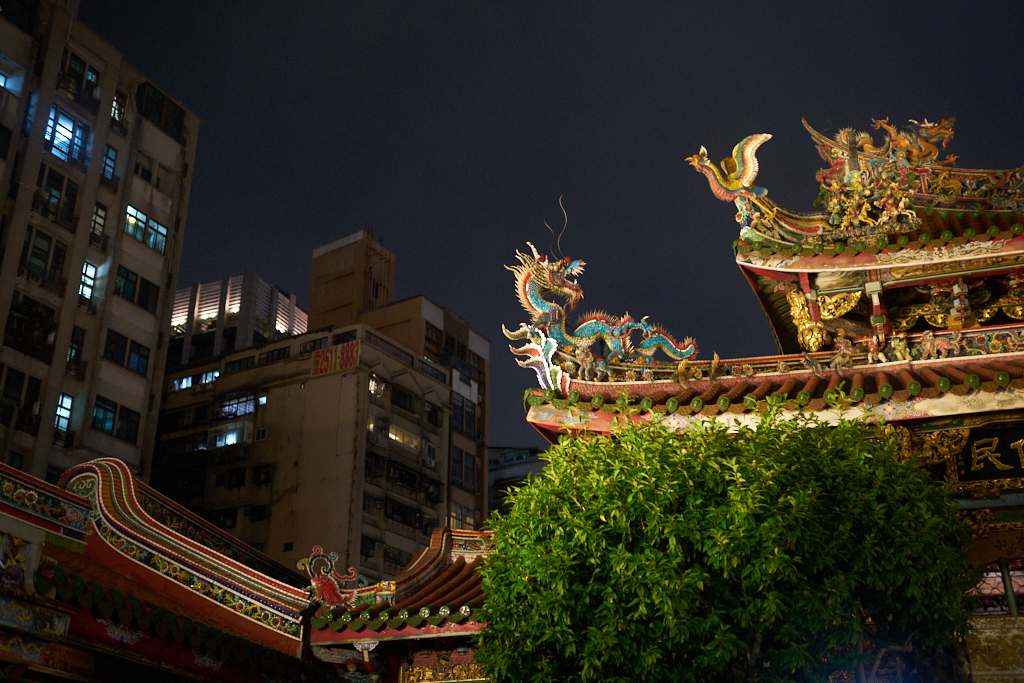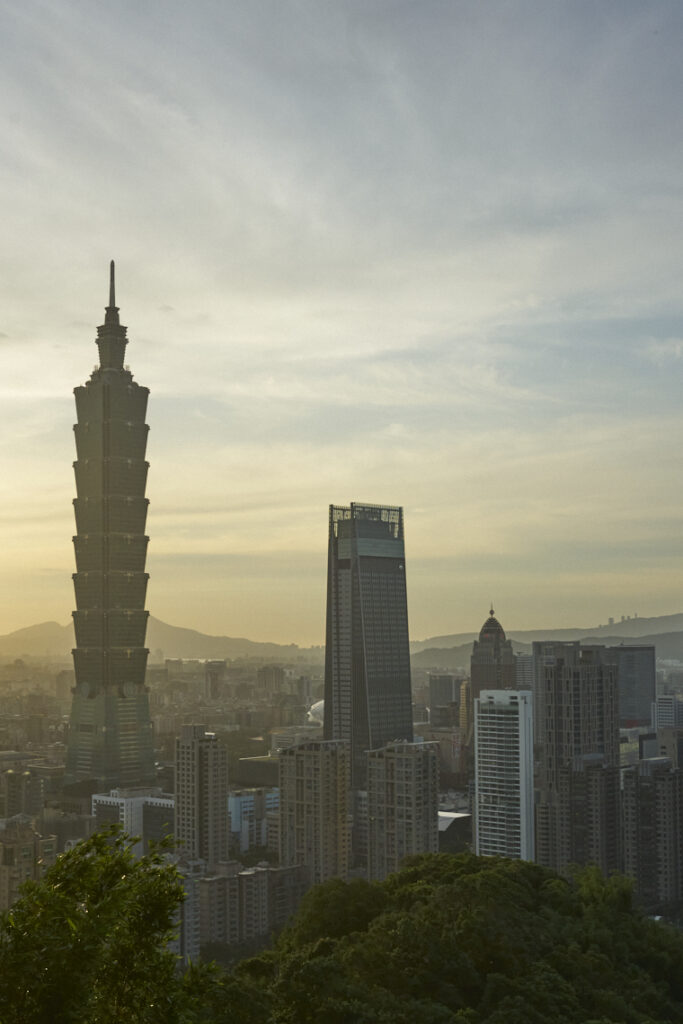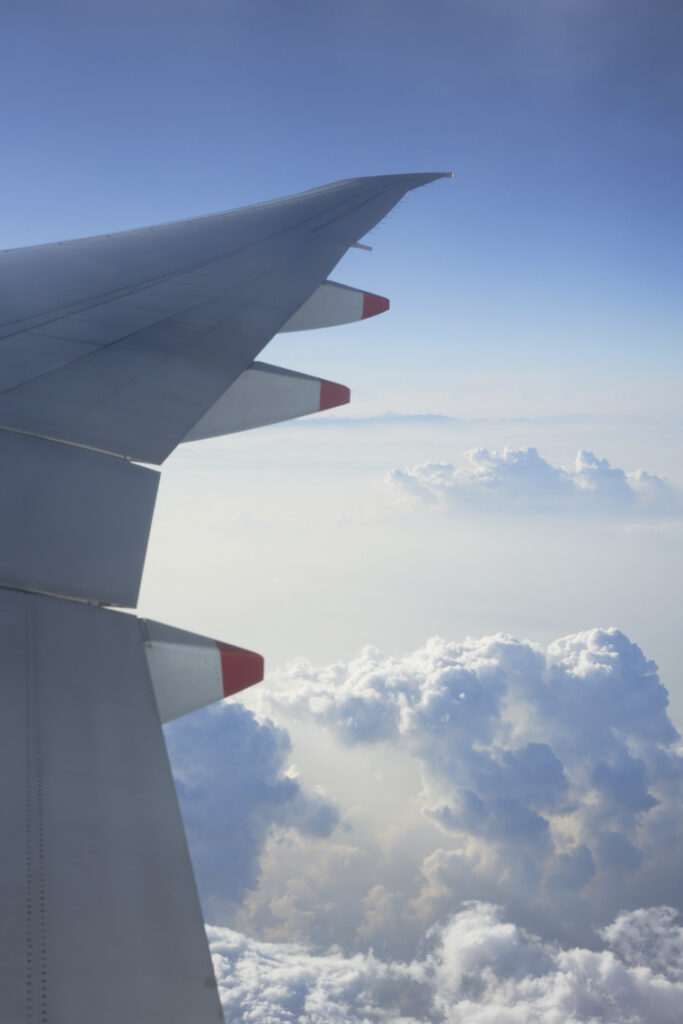Visiting Taiwan
So, you think about visiting us in Taiwan! Great! Three years after Covid started, Taiwan is finally opening for the public again. So let me answer the most frequently asked questions – just to make sure that no-one of us forgets something important!
(Also: Sorry for falling into English out of habit – most of you reading this will likely be German. On the other hand: You will speak English in Taiwan, anyway, so let’s start right here!)
Getting into the mood

Depending on how much time you have, how curious you are, and how adventurous you feel, you might want to get into the mood earlier already and prepare your trip instead of letting life happen over here.
As usual, Wikipedia offers a great source to quickly learn the basics, especially for the intellectually curious. As a start, I recommend the articles on the Republic of China (Taiwan the country), Taiwan the island, the history of Taiwan, and the city of Taipei.
When it comes to books, I really appreciated John Grant Ross’ “Taiwan in 100 Books” as a good and entertaining ride through Taiwan’s history. Together with Eryk Michael Smith, Ross also started a podcast series on Taiwan’s history, “Formosa Files”. If you are more into contemporary issues, Ghost Island Media offers a couple of interesting podcasts on current events and social issues. I am also slowly but steadily gathering my favorite books (on Taiwan and other issues) in my reading list.
And of course there are series, movies, and music! Many streaming services like Netflix offer some Taiwanese movies within Europe, and if your VPN allows to camouflage as Taiwanese, you can even dip into the local offer. Tips might follow, until then, follow your gut!
What to expect in Taiwan, a short overview

Time in Taiwan
Taiwan is on CST (China Standard Time), 6-7 hours ahead of Germany (summer time/winter time).
Days vary little in their lengths, the sun rises early and sets between 5pm and 7pm.
Temperatures in Taiwan
The weather in Taipei is a humid subtropical climate, with hot summers and no dry season. Temperatures are between about 14° and 20° in the winter months, spring and fall are in the 20s°, summers very hot and humid between 25° and 35° (all C). In general, spring and fall are the best seasons to visit, winter can get a bit cold (albeit not nearly as much as in Germany!), summers are only good if you really enjoy sweating all day while it also rains.
Air quality
Taipei has done much to increase the air quality and was quite successful in it. Overall, the city is said to have one of the best air qualities for major Asian cities.
Rain in Taipei
Taipei is very very wet. The average monthly precipitation is 200mm, varying between 100-150mm (Oct – Apr) and 250-350mm (May – Sept during typhoon season, July a bit less). In comparison: rainy Hamburg has “only” between 40mm and 80mm of rainfall each month! However, the average amount of rainy days is between 10 and 15 days, quite comparable to the moody northern German Harbor city.
Overall, rain in Taipei is very different from rain in Germany. It rains in heavy, dense bursts, but is usually not cold. If you mirror the Taiwanese peoples’ approach to rain, it won’t really hinder you from enjoying your time. Just bring an umbrella and a rain coat and you’ll be very very fine!


Language
The de-facto official language of Taiwan is Taiwanese Mandarin, based on the Beijing dialect of Mandarin Chinese. There are various divergences and differences, especially in the more colloquial Taiwanese Guoyu spoken by many of the locals and stronger influenced by local dialects and aboriginal languages. Also, Taiwan uses traditional characters that are different from the simplified characters introduced in mainland China in the 1950s.
While Taiwan has an initiative to become bilingual (Mandarin-English) by 2030, only few Taiwanese over 40 will speak even fragmentary English. (They will still be better at it than you with Chinese!)
Money
The official currency in Taiwan is New Taiwan Dollar (NTD). For 1€ you usually get between 30 and 33 NTD.
Internet
You can expect to have 4G and 5G mobile internet access in all parts of the city and far beyond it. (An average 3000-people village has better connection than the middle of Berlin.) SIM cards are easy to buy at the airport and rather cheap (about 20-30€ for a months). Taiwan’s internet top-level domain is .tw.
Transport in Taipei
Taipei has an excellent public transport system. Five metro (MRT) lines span the city and its surrounding, an extensive bus system braces into the neighborhoods. Frequent “YouBike” stations offer cheap bikes for rent. All services can be easily and rather cheaply used with a simple chip card (the “Easy Card”, we’ll provide one for visitors): MRT rides are usually less than 1€, a typical bike ride between 0.20 and 1€. Sidewalks are frequent and frequently shared by pedestrians and cyclists (albeit in a rather anarchic manner).
Driving in Taiwan
In general, scooters are used much more than cars. Both require a driving license. The German driving license is not valid in Taiwan. (Apparently a tit-for-tat as the Taiwanese is not valid in Germany…) It can be exchanged for a Taiwanese license (and will be sent to Germany in that case as far as I know), but this requires to redo some driving tests. Other European driving licenses are apparently valid.

Packing list for Taiwan
General
- Passport & Return ticket: This is of course most important. It’s an International flight, so make sure your passport is up to date! Also check your visa requirements. Most European tourists should be able to enter without a visa for 90 days as long as their passport is valid for at least six months and they can provide a return ticket, see the homepage of the ministry of foreign affairs.
- Sunscreen: The sun shines bright in Taiwan, and the IV index can reach towering 11, so definitely bring (50+) sunscreen! (The Taiwanese version is quite expensive and very very white.)
- Clothes: If you come outside of winter, you will likely be able to wear short clothes whenever you like, although long sleeves are preferable in the evenings to guard against mosquitos. We hardly wear a jacket outside of the winter months. Bringing swim wear is also a good idea. You will need a swimming cap for indoor pools, but can easily buy one here.
- Power adapter: Taiwan uses type A/B adapters (two narrow square-cut studs, sometimes with a third thick round one below), 110V voltage, and 60 Hz frequency. If you visit us, European electronics will work in a few special 220V sockets. Note though that usually only devices with a power pack (like laptops) will work even with adapters (that you can easily get from us or buy here). Charging via USB (e.g., phones) is of course no problem!
- Travel Guides: You will find much information online, but to separate the wheat from the chaff can be tedious as usual, so it might be wiser to get a travel guide. The usual suspects (Lonely Planet, National Geographic, …) are not outstanding but will do the job. There are some specialized guides we really like (e.g., Goodeye City Guides for general recommendations), but you will probably not get them outside Taiwan.
- You’ll probably know best what you need for a 12 hour flight. If this is your first one: try to book a nice seat, window if you are excited to look out, aisle to be a bit more flexible; food and entertainment will be provided, while buying a small bottle of water after the security check just in case might be nice; you probably won’t have wifi so download whatever you need beforehand (music, books, etc., also addresses and such to stress less about internet); noise cancelling headphones (Sony, Bose, etc.) are great, don’t forget your airplane adapter if you want to use them for the TV; a thick pair of socks, ear plugs, and a sleeping mask can help to sleep a bit, dito a pillow for the neck if you want.
- No meat! Finally, make sure you do not pack any sausages or meat, especially pork. We do like well-meant souvenirs, but Taiwan is fighting hard to keep the swine fever out, and demands high fees for anyone who might even accidentally bring it in (up to 1.000.000 NTD/32.000€).
Apps
While Taipei is quite western for Asian cities, it can still be foreign and overwhelming. Luckily, your smartphone will be there for you!
- Google/Apple Maps: As in any city you don’t know, good maps are indispensable. Both Apple and Google maps work very well, will show you current information on public transport and even guide you to the next return station for your bike.
- Google Translate: You won’t be able to read much, so Google really is your friend when it comes to communication. Google Translate will do wonders. You will often find yourself taking a photo of a Chinese menu and translate it into English, writing an English sentence to show the translation to someone (e.g., in the post office), maybe even translating speech one way or the other.
- Line: Line is the Taiwanese WeChat, the most popular communication app on the island. It’s common to use it to contact you hotel or to stay connected to friends you made. Also, don’t be surprised to see lots and lots of emojis and gifs everywhere!
- Pleco: If you want to learn Chinese or Google Translate will fail you here or there, Pleco is the best choice to look up vocabulary or Chinese characters.
- Facebook: While it’s not necessary and we too don’t use it a lot, many locations will post updates and information on Facebook rather than any official website.
- Uber: It’s easy to find a taxi in Taipei but maybe even easier to order an Uber. This is especially good if you don’t speak Chinese and want to make sure you get to the right destination.
- (And of course your choice of social media and communication apps to stay in touch with us and your friends.)
Flight & Airport Travel

Taipei’s International Airport is Taipei Taoyuan Airport (TPE), one of the busiest airports worldwide outside times of a global pandemic. Its national airline is China Airlines (CI; Sky Team Alliance, like KLM and Air France), not to be confused with Air China, the flag carrier of the PRC. Another Taiwanese airline is EVA Air (BR; Star Alliance, like Lufthansa). Both are very save.
Direct flights between Germany and Taiwan leave from Frankfurt (operated by China Airlines) and Munich (EVA Air). Amsterdam is another good airport to get nonstop flights to Taiwan (also China Airlines). Expect to pay between 700€ and 1000€ for a two-way ticket. (Life hack when flying CI: order any non-standard meal and you will be served first; vegetarian oriental is usually good.)
Six to seven hour time difference means you’ll likely have a jet lag. Flying west is usually easier. That direction (your return flight) we like to fly during the night. Sleeping isn’t easy but your night will be 6-7 hours longer, so you can watch some movie(s) without feeling bad, dozing as much as possible, and will arrive sufficiently rested for a more or less normal day in Europe. The other direction is harder, as you will have one very short day. We usually take a late morning flight which means (remember: 12-13 hour flight) we arrive in the very early morning hours here. It’s hard to sleep (the airline will darken the plain but your body is essentially still on day time), but try to get a few hours here and there and allow yourself a long nap once here. (Naps are culturally very much approved!) It’s really tempting to splurge and sleep the whole day, but that’ll make it rather difficult to get into the rhythms. Anyway – you’ll be on vacation, and on adrenaline, so it will be fine!
Once you arrive in Taipei, follow the signs and the crowd and take your time. (If you didn’t fly for a long time: You basically want to claim your luggage; after that the exit is very close. The airport will make sure to get everything security related they want from you on the way.) The ground personnel is usually very helpful and speaks decent English.
Wifi should be free at the airport. Once you get your luggage, take a few minutes in the main hall to get a SIM card while there.
To get to the city, you can take a bus or the MRT if you want to take public transports. Taxis are usually about 50€ if you prefer not to start your trip on hard mode.
And that’s how your vacation will begin!